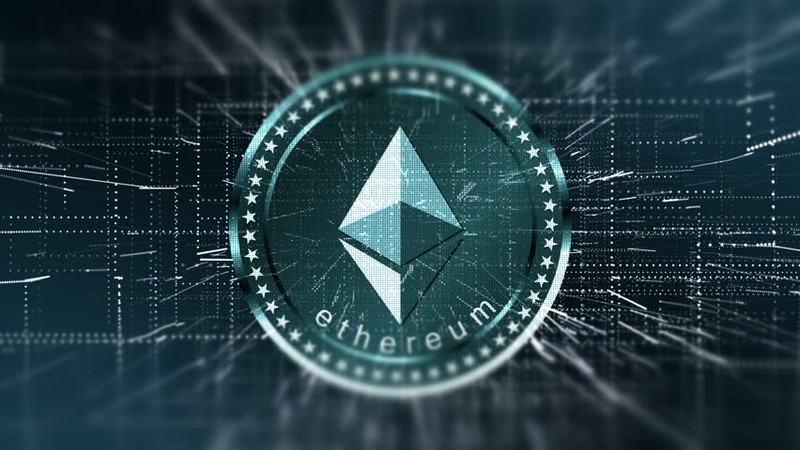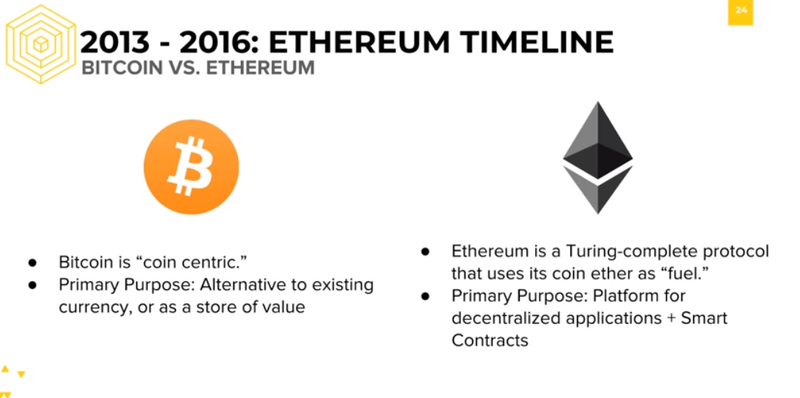
After Bitcoin, the next most influential blockchain platform is Ethereum.
Bitcoin is a storage of value, that is to say, it’s “coin-centric”. It was created as a medium of payment transaction and a store of value, an alternative to regular money.
Ethereum, on the other hand, was developed as a platform to execute peer-to-peer “smart contracts” and applications. It supports Turing-complete languages, meaning that it can perform general computation.
In other words, any type of code that you run on a regular computer can also be run on Ethereum. Code execution on Ethereum is fueled by Ethereum’s internal token, called ether.

Ethereum was first described in a whitepaper released in late 2013 by then 19-year-old Vitalik Buterin, a programmer from the University of Waterloo. The platform had a token sale between July and August 2014 and sold 7.4 million ether for 3700 BTC in the first 12 hours of the presale.
At the time, this was equivalent to 2.3 million USD, or in Bugatti terms, about 1.2 Veyrons. The Ethereum blockchain officially went live on July 30th 2015, and by May 2016, the cumulative value of Ethereum tokens was more than $1 billion.
Around that time, the idea of Decentralised Autonomous Organizations (DAOs for short) became hugely popular. DAOs are essentially programs on the Ethereum blockchain that create a distributed government.
“The DAO” was a specific project that would serve as a decentralised Venture Capital, allowing their investors to vote and decide on the distribution of funds between startups. However, in July 2016, these dreams came crashing down when a hacker exploited a bug in the underlying code, stealing about $120 million worth of Ether from The DAO smart contract.
Outraged by the enormous theft, several voices in the community proposed to defy the protocol and undo the hack. The majority of community decided to simultaneously rewind their own chain and ignore all activity tarting from the hack, but a small subset chose not to undo that activity with the belief that “code is law.”
The split that rewinded history is the split that is currently branded as Ethereum. The remainder that believed that nothing - including catastrophic events like the DAO Hack - should be reverted stayed on the main chain, now known as Ethereum Classic.
Comments